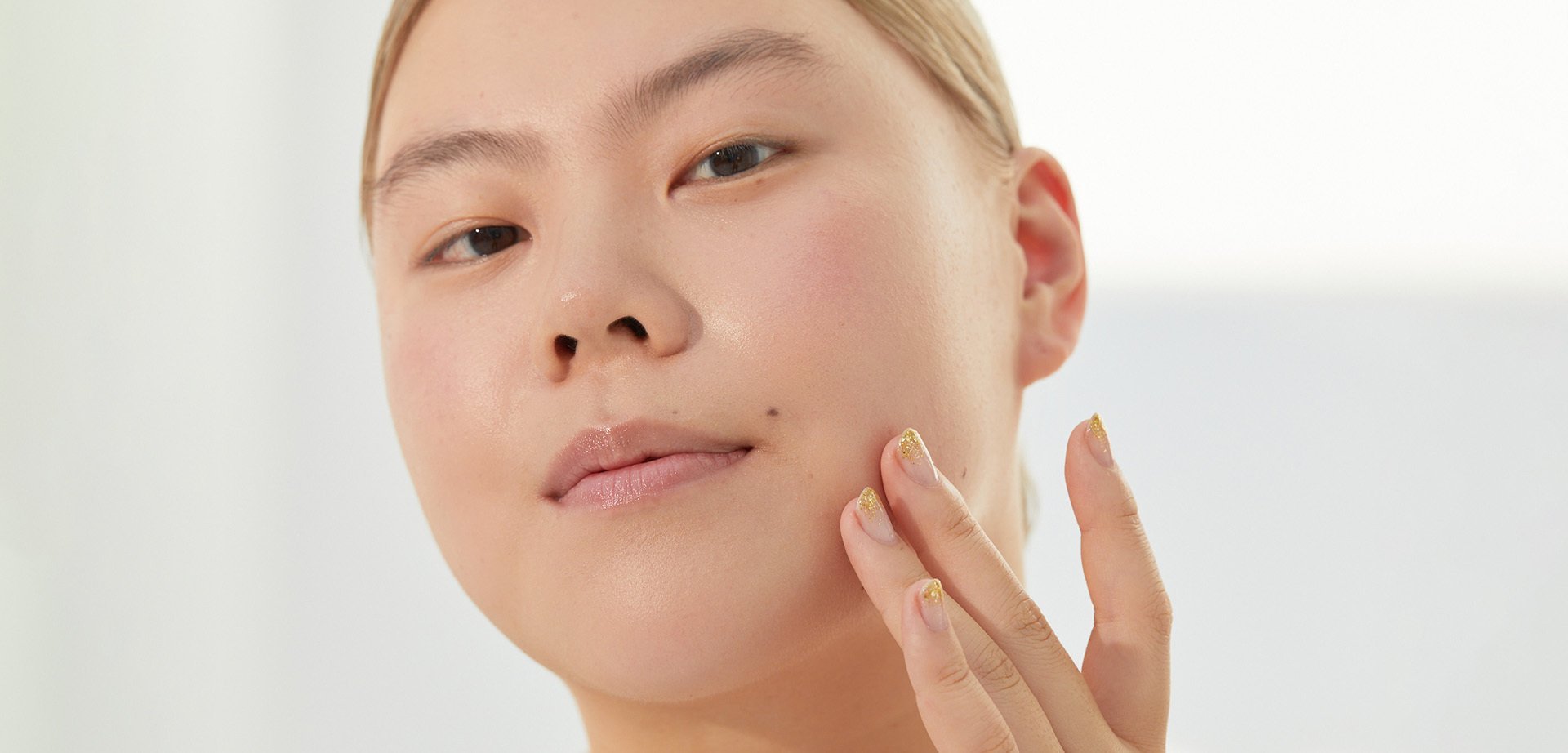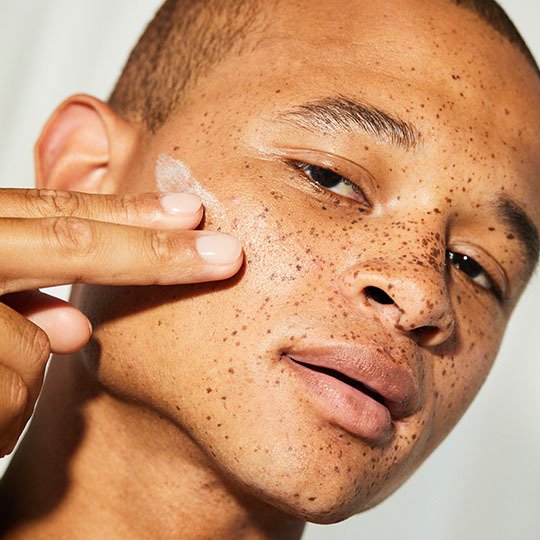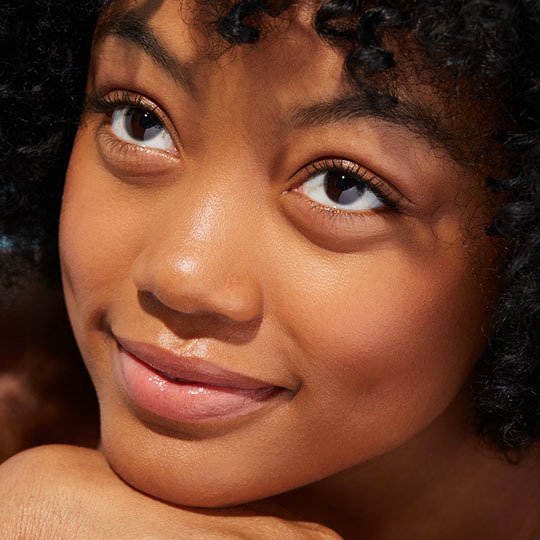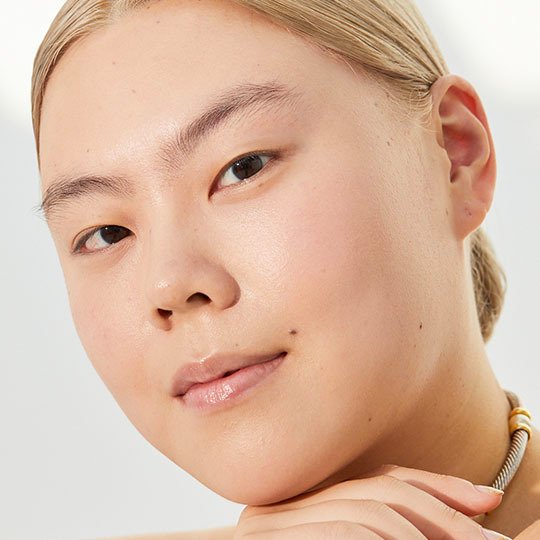Does Acne Ever Go Away?
August 15, 2023
Acne is most often associated with puberty and your teenage years, but pimples don’t necessarily disappear once you reach your 20s. (Oh, how one can dream!) In fact, according to the American Academy of Dermatology (AAD), it’s not uncommon to experience everything from whiteheads and blackheads to cystic acne well into adulthood. The reason for this? Genetics and more specifically, hormones. For more insight on teenage and adult acne, we tapped Dr. Hadley King, board-certified dermatologist and Skincare.com consultant. Keep reading to learn about the difference between adult acne and teenage acne, plus how you can treat both, when you can expect acne to go away, and the best acne-fighting ingredients and products to include in your skincare routine.
How Does Adult Acne Differ From Teen Acne?
Puberty is a tough time for many, and dealing with acne in your teens is often a common sign of coming of age. Unfortunately, growing out of your teen years doesn’t always mean acne magically goes away — it may just move to a different part of your face. “Teenage acne often affects the whole face while adult acne in women is seen most commonly in the beard [or chin] area,” Dr. King says. While adult acne tends to be more common in women, men can also experience it, and acne located around the chin or jawline area is typically a telltale sign of the condition.
Adult Acne
What Is Adult Acne?
Adult acne is typically caused by an influx of hormones in the body and can start as young as your 20s and stick around well into your 50s. “Adult acne is more common in women than in men because of ongoing hormonal fluctuations,” Dr. King says. While about 54% of women on average deal with hormonal adult acne, only 10% of men do. Furthermore, the AAD shares that women often deal with fluctuating hormone levels due to their menstrual cycles, pregnancy, menopause and coming off birth control, which can all lead to acne.
What Causes Adult Acne?
“The primary causes [of adult acne] are genetics and hormones,” says Dr. King. “Stress can play a part as well and for some people, diet may make a difference too — particularly foods with a high glycemic index and some dairy products.” She also shares that some studies indicate body mass index can correlate with adult acne. The AAD further explains that an increase in stress can cause a heightened production of androgen hormones, which can stimulate oil glands, creating an excess of oils that can lead to acne.
How to Treat Adult Acne
Adult acne can be difficult to treat because it means you have to manage your hormones. “Topical options including salicylic acid, benzoyl peroxide, retinoids or aczone may all be helpful,” Dr. King shares. A good place to introduce these ingredients into your routine is with a daily cleanser. Try the CeraVe Acne Foaming Cream Cleanser BPO 4% — a creamy face wash that contains 4% benzoyl peroxide and ceramides to cleanse the skin and minimize acne without drying it out.

“Topical retinoids are good for fighting acne and helping to prevent and treat clogged pores,” Dr. King says. “They increase skin cell turnover and reduce the tendency of cells and keratin debris to clog pore. They also help to decrease discoloration.” If you’re looking to include retinol in your skincare routine, try the SkinCeuticals Retinol 0.5, a concentrated night cream with vitamin A that helps to improve signs of aging while minimizing breakouts. Another good option is the Skin Better Science AlphaRet Clearing Serum, which contains a combination of retinoid, salicylic acid, lactic acid and niacinamide to balance oils and improve skin clarity without causing irritation.

A good rule of thumb to remember: Always talk to your doctor before introducing new products or ingredients into your skincare routine. If you’re dealing with hormonal acne, your dermatologist may prescribe tretinoin, a popular prescription retinoid commonly used in the treatment of acne. “Oral hormonal options such as oral contraceptives or spironolactone tend to be particularly helpful for adult acne in women,” Dr. King shares. “Isotretinoin can also be an option for [stubborn acne] cases in both men and women.”
If you’re dealing with acne, avoid picking or popping your blemishes because this can lead to increased inflammation, scarring and even infection. Instead, try a targeted acne treatment like the Kiehl’s Truly Targeted Acne-Clearing Pimple Patch with Salicylic Acid. This liquid acne patch looks invisible on the skin while it helps to visibly reduce pimple size, color and marks. It can also be worn under makeup to help heal blemishes while you mask them.

Hydrocolloid pimple patches like the Starface Hydro-Stars + Big Blue can also be a good option for active blemishes. These star shaped ones contain 1% salicylic acid to shrink pimples and reduce inflammation.
Teenage Acne
What Causes Teenage Acne?
Many will deal with acne during their teenage years, and that is all thanks to puberty. The Cleveland Clinic reports that due to hormonal changes during this time, the skin produces more oil, and when that oil mixes with dead skin cells, it clogs pores and creates bacteria that leads to whiteheads, blackheads and cystic acne.
Furthermore, Dr. King shares that teenage acne (much like adult acne) is often a result of genetics and hormones, but stress and diet (some types of dairy especially) can also play a role. Teenage acne tends to be more common in males and targets the entire face, but teenage girls can also experience it.
How to Treat Teen Acne
Over the counter treatments, such as benzoyl peroxide, salicylic acid and adapalene can be helpful in fighting teenage acne, according to Dr. King. “Benzoyl peroxide is an organic acid that has been used to treat acne for over 60 years,” she shares. “It is effective for treating acne because of its keratolytic, moderate comedolytic, and antibacterial properties. This means benzoyl peroxide not only kills bacteria that contributes to acne, but also helps to prevent it.” To include benzoyl peroxide in your daily skincare routine, she recommends cleansing with the PanOxyl Acne Foaming Wash Benzoyl Peroxide 10% Maximum Strength. If you have sensitive skin, try the PanOxyl Acne Creamy Wash Benzoyl Peroxide 4% Daily Control.
Another acne-fighting ingredient Dr. King recommends to her patients is salicylic acid. “Salicylic acid is a beta-hydroxy acid (BHA) which exfoliates the surface of the skin and penetrates deep into pores to remove oil,” she shares. “This helps to prevent clogged pores and to remove clogs that have already formed. It's also great for treating and preventing black- and whiteheads.”
Dr. King recommends salicylic acid for teens and adults with oily and acne-prone skin, but that doesn’t mean those with sensitive or dry skin can’t use it, either. “BHAs, such as salicylic acid also have anti-inflammatory, calming properties which makes them gentle for sensitive skin, and skin that is prone to redness and/or rosacea.”
To incorporate salicylic acid into your daily skincare regimen, add it to the first step of your routine with the CeraVe Renewing SA Cleanser. This gentle gel cleanser is infused with salicylic acid and ceramides to effectively remove dirt and oils while lightly exfoliating dead skin cells. Another option is the La Roche Posay Effaclar Salicylic Acid Acne Treatment Serum, a nightly serum that contains a blend of salicylic acid and glycolic acid to clear acne and prevent new blemishes while reducing enlarged pores and fine lines.

When you’re dealing with acne, make sure you’re using non-comedogenic skincare products — this means they are formulated without ingredients that can clog pores. According to Dr. King, topical comedogenic products can lead to acne on the face and even on the body, especially if you have acne-prone skin. If you’re on the hunt for a good non-comedogenic moisturizer to round out your acne-fighting skincare routine, consider the Kiehl’s Ultra Facial Oil-Free Moisturizer or the Tower Beauty 28 SOS Recovery Cream.
Does Teen Acne Go Away With Age?
According to the AAD, teenage acne can run its course through the early 20s when puberty ends. If you continue to have acne past that point, then it’s likely adult acne. If you find that topical retinol or salicylic acid are not working or at least helping to manage your acne, make an appointment with your dermatologist. According to Dr. King, options including Aczone, oral antibiotics, hormonal treatments or isotretinoin can help to manage teen and adult acne, but will require a prescription.
When Does Teenage Acne Go Away?
According to the Cleveland Clinic, teenage acne can last into early adulthood. But once you get through puberty, (which is different for everyone) your teenage acne should start to disappear. That said, you may also begin to experience adult acne at this time. If your acne transitions from all over your face to the chin area, this is usually a good indication that you’re dealing with adult acne, per Dr. King. Additionally, the AAD shares that if a parent or older sibling has acne, this may indicate that you have a predisposition for adult acne.




.jpg?cx=0.490000009536743&cy=0.540000021457672&cw=150&ch=120&blr=False&hash=0B0F55675A6B9FE3724F6E2EC9118A01)







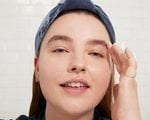

.jpg?cx=0.490000009536743&cy=0.540000021457672&cw=150&ch=120&blr=False&hash=5E78490B76BBC8CC9D76D2EBDFF515E0)



